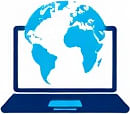Sleep Hygiene Tips for Remote Workers
 by Verner Mayer
by Verner Mayer
Discover practical sleep hygiene tips that help remote workers maintain better rest and improve daily performance. Learn how quality sleep supports work-life balance and enhances focus in a home office setting, making remote routines more effective.

Remote work often blurs the lines between professional duties and personal time, making restful sleep essential for maintaining focus and energy. Many remote workers face challenges with irregular schedules, which can affect overall well-being. By focusing on sleep hygiene, individuals can create routines that promote better rest and boost daily output.
Why Sleep Matters in Remote Settings
Sleep plays a key role in sustaining energy levels for those working from home. Poor rest can lead to reduced concentration and slower task completion, impacting job performance. For remote teams, consistent sleep helps ensure clear communication and reliable collaboration during virtual meetings. Establishing good habits around bedtime can make a noticeable difference in how effectively one handles daily tasks.
One major benefit is the improvement in mental clarity. sleep hygiene practices allow workers to wake up refreshed, ready to tackle projects without fatigue. In environments without a traditional office commute, it's easy for work to extend into late hours, but prioritizing rest prevents burnout and supports long-term health.
Practical Tips for Better Sleep Hygiene
To build a solid foundation for sleep, start with a consistent bedtime routine. This means going to bed and waking up at the same time each day, even on weekends, to regulate the body's internal clock. A dark, quiet bedroom environment is ideal, as it minimizes distractions that could interrupt rest.
Avoid screens before bed, as the light from devices can interfere with natural sleep patterns. Instead, opt for reading or light stretching to wind down. work-life balance improves when these habits are in place, allowing remote workers to separate their workday from evening relaxation.
Hydration and nutrition also contribute to quality sleep. Limit caffeine intake in the afternoon and choose light evening meals to avoid discomfort during the night. Physical activity during the day, such as a short walk, can promote deeper rest, but avoid intense exercise close to bedtime.
For those in virtual teams, maintaining sleep hygiene means being more present and engaged in meetings. Well-rested individuals contribute more effectively, fostering stronger group dynamics. Simple adjustments, like keeping a sleep journal, can track progress and highlight areas for improvement.
Connecting Sleep to Productivity Tools
Many remote workers rely on digital tools to manage tasks, and integrating sleep hygiene with these can enhance results. Calendar apps, for example, help schedule breaks and bedtime reminders, ensuring time for rest amid busy schedules. By aligning tool use with sleep goals, workers can maintain steady productivity without overextending.
productivity tools like task managers offer features to set daily limits, preventing work from spilling into rest periods. This integration supports a healthier routine, where tools serve as aids rather than sources of stress. For managers overseeing remote teams, encouraging sleep awareness can lead to better team outcomes and reduced turnover.
In practice, combining sleep strategies with app-based organization creates a balanced workflow. For instance, ending the workday at a set time allows for evening unwind routines, directly linking rest to efficient task handling the next day.
Overcoming Common Challenges
Remote setups often involve home distractions, such as family or household noise, which can disrupt sleep. Creating a dedicated workspace separate from the sleeping area helps maintain boundaries. Noise-cancelling headphones or white noise machines can further enhance the sleep environment.
Stress from virtual collaboration is another hurdle. Regular breaks and mindfulness practices can alleviate tension, paving the way for restful nights. By addressing these issues, remote workers build resilience and sustain performance over time.
Building Lasting Habits
Adopting sleep hygiene tips requires commitment, but the rewards are clear in improved daily function. Start small, with one or two changes, and gradually incorporate more as routines solidify. Over time, these practices become second nature, supporting ongoing success in remote roles.
For freelancers and businesses new to remote work, prioritizing sleep hygiene offers a pathway to greater efficiency and satisfaction. As individuals refine their approaches, the positive effects extend to team interactions and overall job fulfillment, making it a worthwhile focus for anyone in flexible work arrangements.
